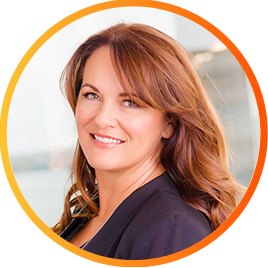
How do you keep your Real Estate Business Profitable in a Down Market?
A big question facing many Real Estate business owners now is how to maintain profitability and returns to shareholders in a market where some business owners are facing reductions of revenue of 20% or more from the peak of the market.
Put simply, it is essential that when revenue comes back by 20% we need to ensure costs are reduced by an equal or larger amount than the reduction in revenue.
Unfortunately, most Real Estate business owners are very generous in growing resources and costs as a business grows but very slow and reluctant to reduce costs when the market pulls back.
Whether it is a sense of loyalty to people or the legislative difficulties associated with restructuring; Real Estate businesses are traditionally very slow to match and manage costs in line with a declining revenue.
Failure to reduce costs in line with revenue reductions will see some Real Estate businesses fail and collapse over the upcoming 12-month period.
The danger that any business will face with declining revenue and slow cost reduction is lower profitability, cashflow pressure and in the worst cases insolvency issues.
Real Estate is a cyclical business with peaks and troughs over a property cycle.
Real Estate business owners therefore need to structure their business in a manner that gives the owner the ability to keep costs "variable" and be able to scale costs to revenue as it goes up and down.
Real Estate as an industry has the advantage that the key selling cost of an agent's commission is a "variable" cost in that if there is no revenue there is no corresponding cost.
If only we could keep all costs variable, we could guarantee profitability under any market conditions.
Unfortunately, landlords, utility companies and banks will not accept being paid on a variable basis so it's impossible to have all costs on a variable basis.
Although we cannot make all our costs variable, the more costs that are variable, the more control the business owner has and the greater the probability the business will remain profitable in all market conditions.
Put simply, business owners can de-risk the business and guarantee profitability in any market conditions by ensuring as many costs as possible are structured on a variable basis as opposed to being on a fixed basis.
The largest cost for Real Estate businesses after agents selling commission is wages.
To make meaningful structural changes to a Real Estate business, it is essential that wage costs are linked to revenue so that when revenue falls so do the wages. This is only logical because if revenue is lower there is less work to do.
The most efficient way of "matching" wage costs to revenue is to have support staff on flexible contracts or outsourcing.
Outsourcing for Real Estate companies is a great alternative as the process of selling a property from listing to processing the completed contract is a consistent routine task easily systemised.
Outsourcing your administration can not only turn your administration costs into a variable cost, thereby safeguarding the future of your business; it can also result in significant cost savings.
If you want to know more about Outsourcing in real estate business contact us now at + 64 9 600 3907.

Toni Alford
Don’t get left behind. Contact us to discuss your business.